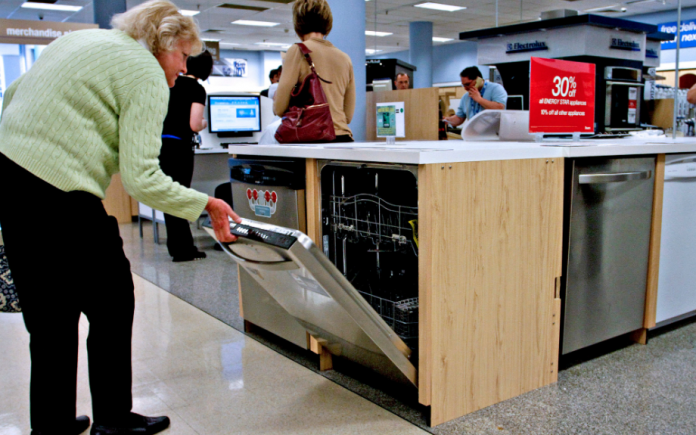The Department of Energy is suggesting stricter guidelines for newly manufactured beverage vending machines and dishwashers to decrease their energy and water consumption and thereby reduce the release of greenhouse gases. This move is part of a broader initiative by the department to combat climate change and help consumers save on their energy expenses. During President Joe Biden’s term, the DOE has proposed over 100 efficiency-related regulations as part of its commitment to environmental conservation.
On Friday, the DOE declared another final regulation that imposes stricter efficiency requirements for electric motors, which are utilized to power manufacturing and processing machinery.
“With today’s announcements, DOE is making rapid progress to strengthen outdated energy efficiency standards — as directed by Congress and in coordination with our industry partners and stakeholders — and support healthier, safer communities for the American people,” Energy Secretary Jennifer Granholm stated.
The suggested regulation aims to enhance the energy efficiency of standard-size and compact dishwashers by imposing stricter requirements on their maximum estimated annual energy use and per-cycle water use, starting from 2027.
As per DOE’s assessment, the proposed rule is projected to generate nearly $3 billion in savings for consumers over the next three decades and curb carbon dioxide emissions by 12.5 million metric tons, which is comparable to the annual emissions of 1.6 million households.
It is estimated that the average savings per unit throughout the lifespan of the product would be $17 for standard appliances and $30 for compact appliances. However, the overall cost of transitioning to meet the industry’s required standards was around $125.6 million.
In the case of the vending machine proposal, the DOE predicts that it would cut energy expenses for companies by $20 million every year, while the conversion expenses are expected to be around $1.5 million.
The DOE’s latest electric motor regulation, which applies to machinery like compressors, fans, and pumps, is set to be implemented in 2027. This regulation is predicted to result in potential consumer savings of up to $8.8 billion in utility bills over three decades. However, the conversion cost for industries to comply with this regulation is estimated to be approximately $468 million.
The DOE’s efficiency rule-making efforts during the Biden administration have covered a wide range of products, from pool heaters and light bulbs to stove products.













